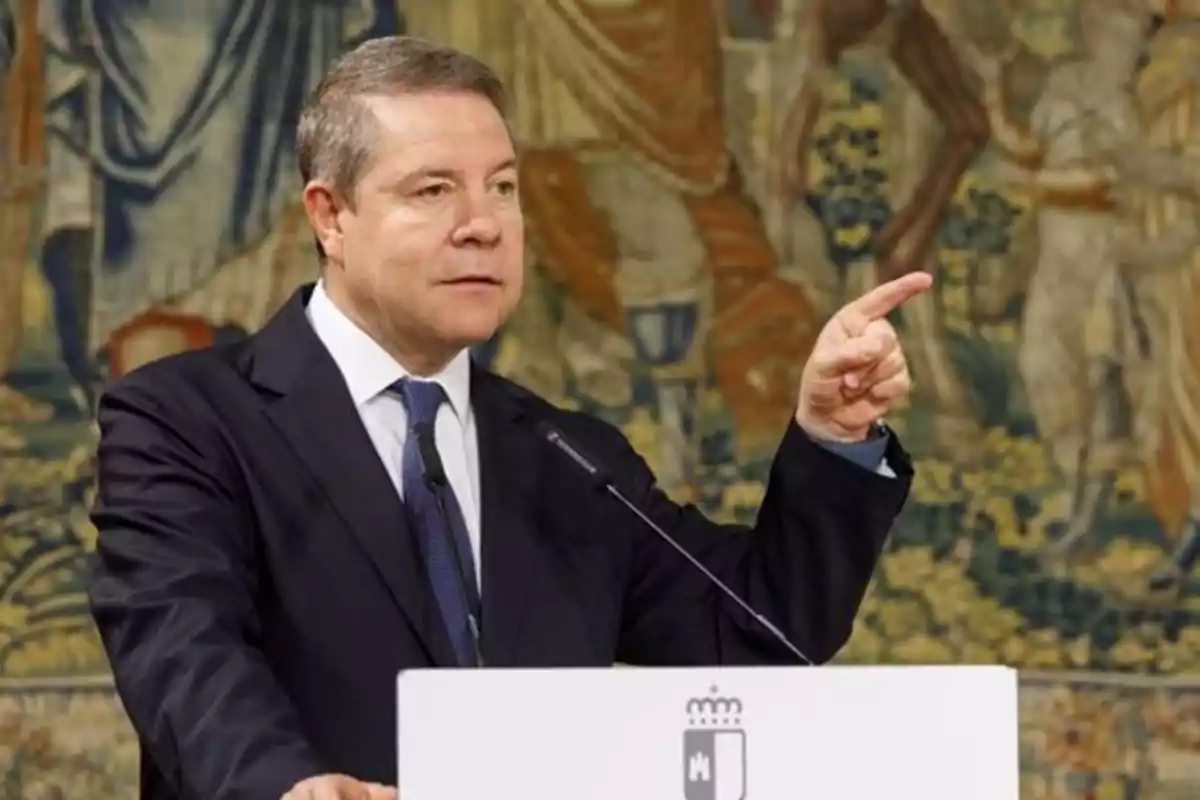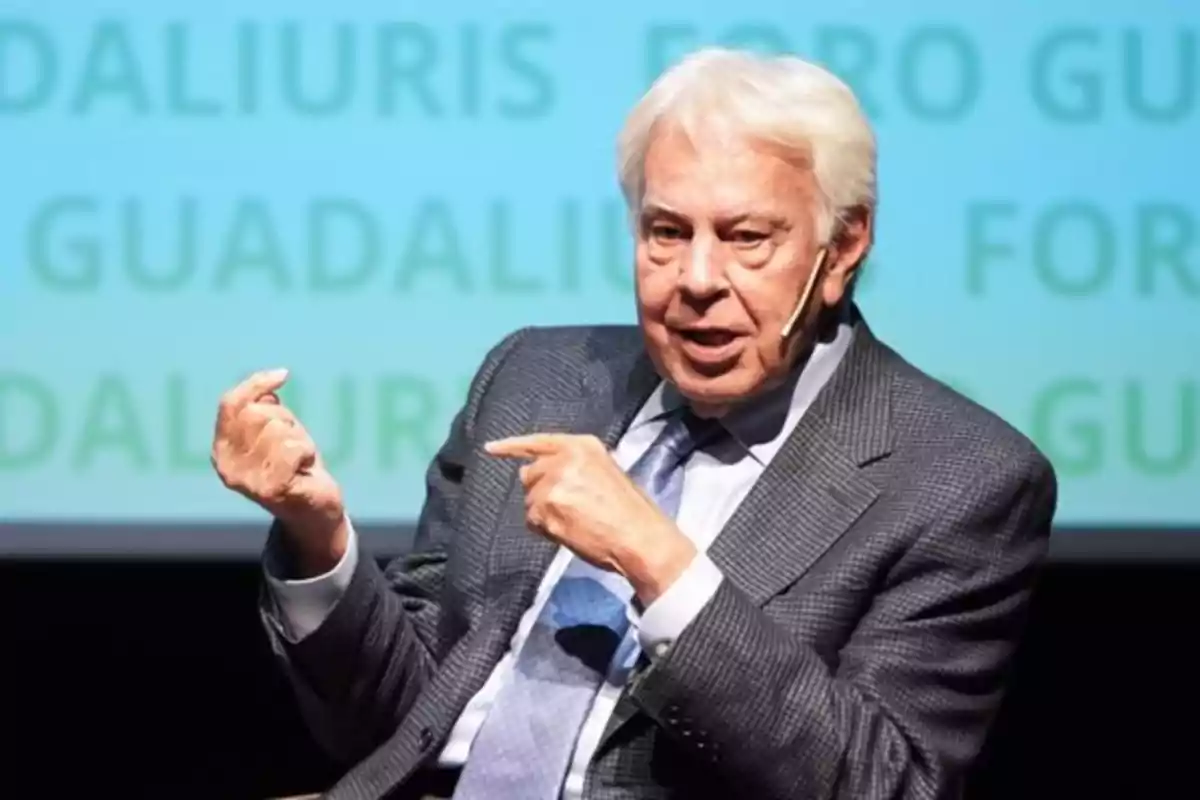
Former Sanchists pin their hopes on Adriana Lastra after the 'Cerdán case' erupts
This group can stand up to La Moncloa, which until now has swept aside the weak anti-Sanchismo led by García-Page
The scandal shaking PSOE, already known as the "Cerdán case," has opened deep cracks in the socialist structure. The alleged involvement of the until-now Secretary of Organization, Santos Cerdán, in a scheme to rig public contracts has given ammunition to critical sectors that, until a few weeks ago, seemed cornered by Ferraz's apparatus.
With President Pedro Sánchez's position increasingly compromised, even among sectors that supported him in the past, more voices are calling for a change of direction. The intention is to recover political momentum.
Adriana Lastra, who has been away from the front line since she lost her internal battle against Santos Cerdán three years ago, is beginning to emerge as a figure who could channel that discontent. Close to the grassroots and having returned to her native Asturias as Government Delegate, her name is starting to gain traction among mid-level officials and former leaders who don't agree with the current strategy of the leadership.
This isn't, for now, an organized movement or a candidacy. But it is a state of mind. The ex-Sanchismo led by Lastra could have much to say about PSOE's future.
It's a different matter when it comes to the noisy internal anti-Sanchismo, which only seems relevant to conservative media. Emiliano García-Page leads this bloc which, according to sources consulted in Ferraz, has a level of representation among the membership that doesn't reach 15%.
Juan Lobato Keeps Stirring Things Up
The internal opposition bloc, until now represented by figures like García-Page, has added new faces. The President of Castilla-La Mancha has been especially combative. His criticism of the dependence on the pro-separatist parliamentary bloc is causing discontent in Ferraz.
Alongside him, Juan Lobato, former general secretary of Madrid's PSOE, is positioning himself. Now, after his resignation, he is trying to build networks to return to the national political stage. Lobato, who was interviewed yesterday on Onda Cero, keeps a busy media schedule to erode the federal leadership.
The former Madrid baron has called for a federal Congress, in which he could run. Regarding Sánchez's continuity, he has made it clear that he believes he should go. "It's not about all of us defending President Pedro Sánchez. It's about defending PSOE. It's a matter of defending a pillar of this country's democracy, which is the party," he asserts.

Eduardo Madina has also reappeared on the scene, in this case involuntarily. The former deputy, who has been away from politics for years, has been dragged back into the media spotlight by a clumsy attack from Óscar Puente. The Minister of Transport accused him on social media of not having accepted his defeat in the 2014 primaries. The comment reopened the poorly healed wounds of that internal contest. The same one in which Sánchez defeated Madina... with García-Page's support.
Felipe González has taken advantage of this situation to deliver more direct blows. The former President, who ended up tainted by state crime and corruption, hasn't hesitated to denounce Sanchista management, the same one that brought PSOE back to power.
Alfonso Guerra and Susana Díaz are also back in action with their anti-Sanchista agenda. Both are calling for an extraordinary congress and an urgent review of the leadership. What was just a murmur a few months ago is starting to gain some momentum in certain sectors of PSOE.
Ferraz's resistance to calls for an organizational or electoral renewal is interpreted as a sign of wear and disconnection. The staunch defense Sánchez has made of Cerdán until the last minute hasn't been well received among those who believe the party can't afford more ethical stains.
Meanwhile, discreet meetings and cross-calls between regional leaders, mid-level officials, and former Sanchismo collaborators are intensifying. This isn't a uniform bloc nor does it have a defined strategy, but they share a common diagnosis. They say that if PSOE wants to survive as an autonomous project, it needs to reread itself. This wouldn't involve calling elections, which would mean handing power de facto to the right.

In that search for leaders, Lastra's name is gaining traction, not as a break with the past, but as a possibility to return to a socialism with soul, without tutelage or servitude. The great paradox is that those who are raising their voices today still don't have a roadmap. They move between the nostalgia for a party they no longer recognize and the fear that the only alternative to the current leadership is surrender to the right or parliamentary irrelevance.
The cracks are there, and political time is starting to run against La Moncloa.
More posts: